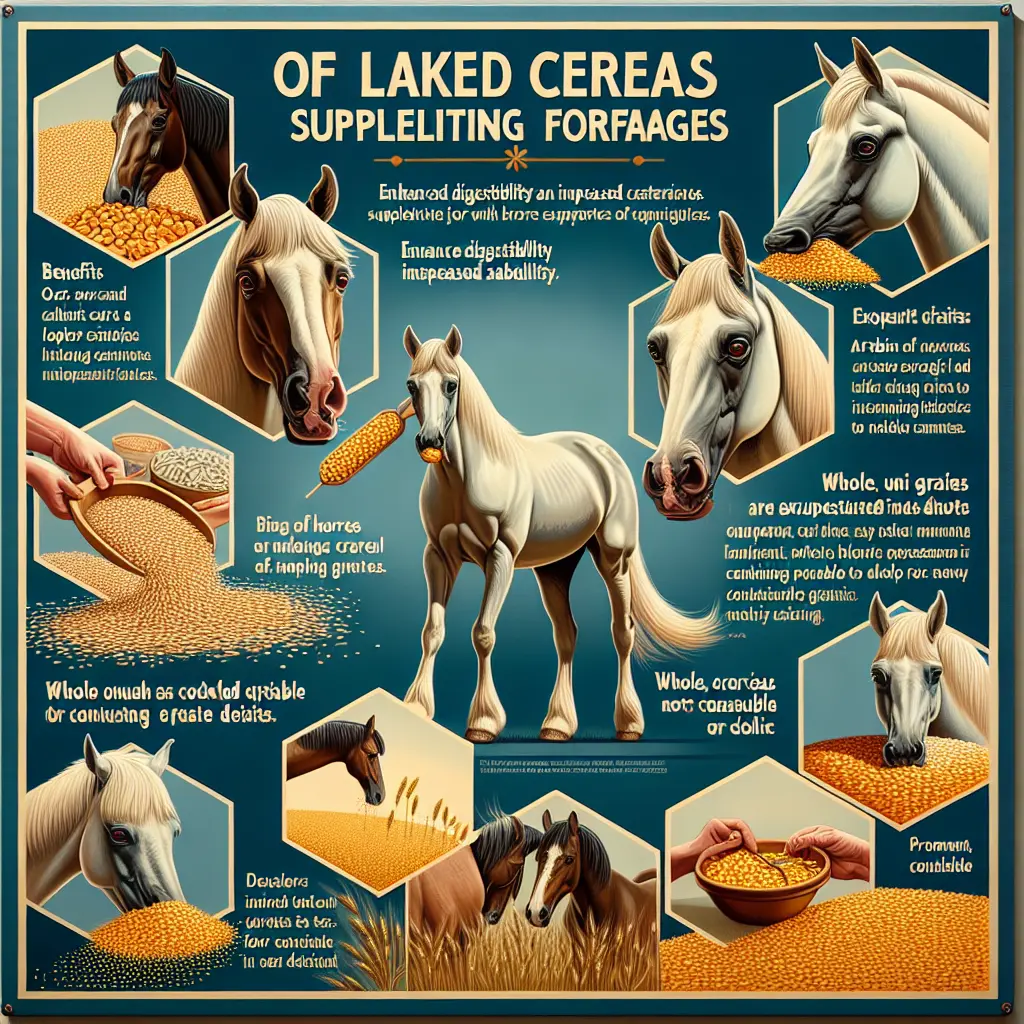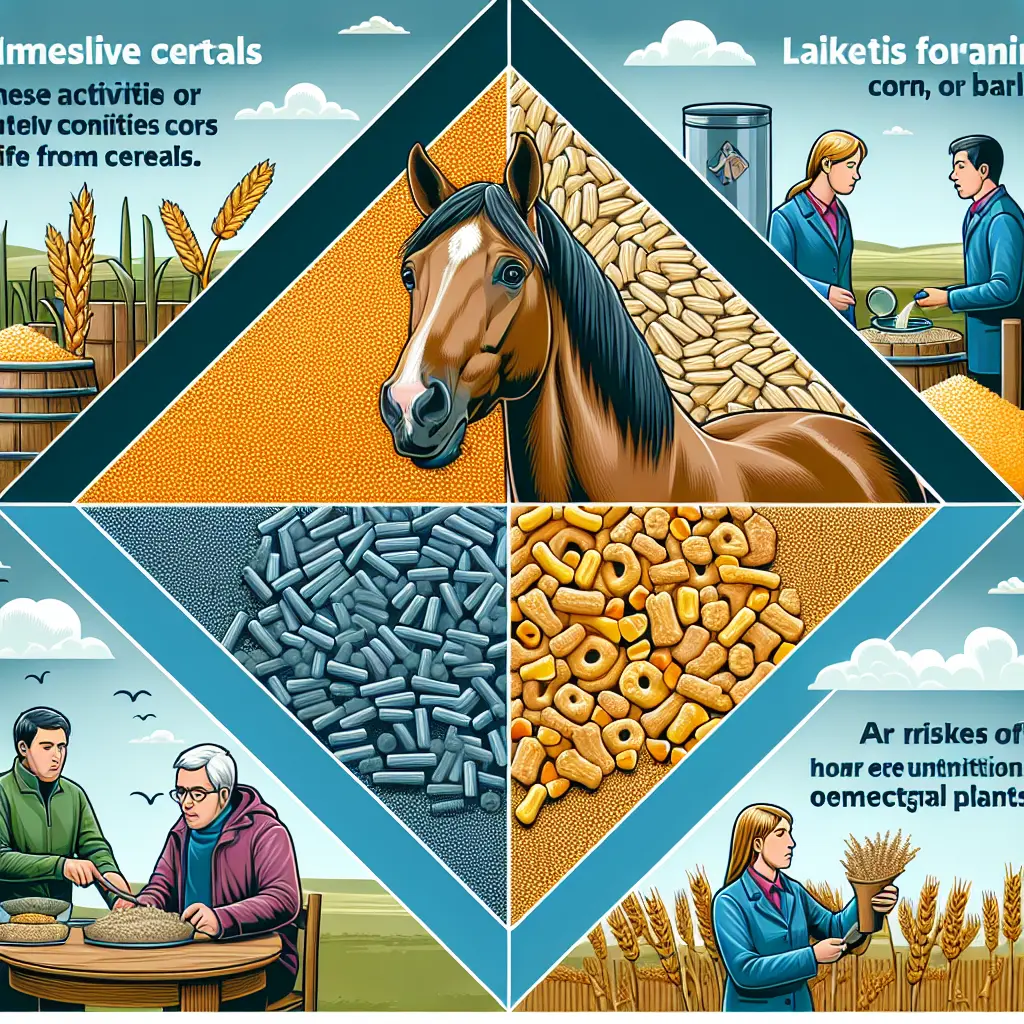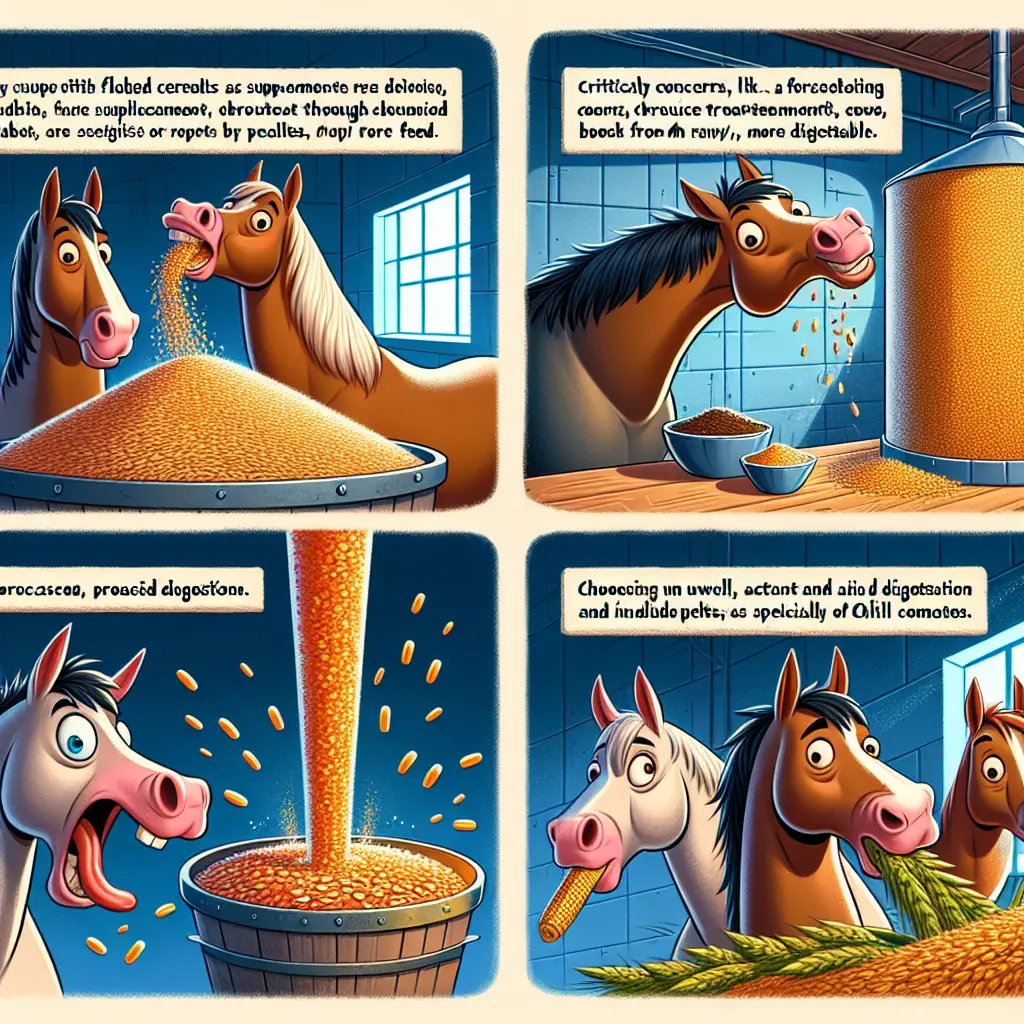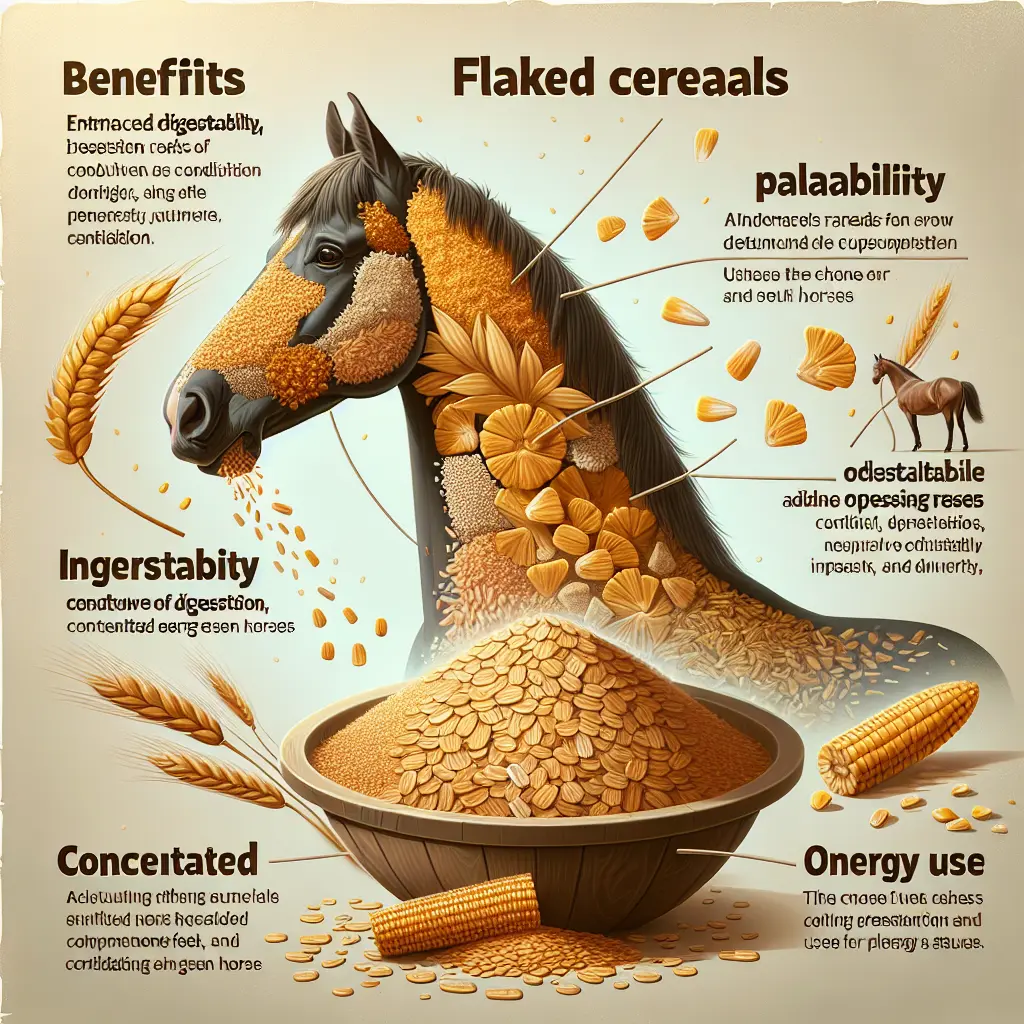Exploring the Benefits and Drawbacks of Flaked Cereals in Horse Diets
As any equestrian will tell you, horses are no mere oversized pets; they're majestic beings with unique needs, especially when it comes to their diet. Their digestive systems crave attention and care, and horse owners must ensure they're feeding them just right. Today, we'll gallop through the world of flaked cereals, eyeing their benefits and potential pitfalls in horse diets.
Introduction to Flaked Cereals
Flaked cereals are grains such as corn, barley, and oats that have been processed through steam and micronization, increasing starch digestibility and accessibility for horses (Reverdy). While they can provide significant nutritional advantages, not all horses will benefit from them, particularly those with specific dietary needs or health conditions (FeedXL). So, saddle up as we explore more!
Benefits of Flaked Cereals
Enhanced Digestibility

Unlike whole grains, flaked cereals are far more digestible, permitting horses to better absorb the nutrients and energy their bodies need. The processing method enhances starch digestibility by up to 20%, ensuring that horses get maximum energy return from what they consume (Royal Horse). This is a critical factor for horses with demanding energy needs.
Palatability and Salivation

Flaked cereals outshine their pelleted counterparts in terms of palatability. Horses are encouraged to chew more, which leads to increased salivation. And yes, more saliva can buffer stomach acid, helping decrease the risk of gastric issues, thus ensuring a "neigh" to bellyaches!
Energy Provision
Akin to a teenager's love for pizza, horses crave energy. Flaked cereals are a fabulous source, catering to horses that are active or residing in colder climates where caloric needs spike (Penn State Extension). Their concentrated energy supply is pivotal in supporting the high demands of an energetic steed.
Drawbacks of Flaked Cereals
Digestive Risks
Ah, the conundrum! While flaked cereals can enhance digestibility, overconsumption may spell trouble. Horses have a limit on starch digestion, and excess can lead to colic or laminitis—a situation horse owners need like they need another pair of riding gloves! Cautious introduction to these cereals is key (Royal Horse).
Specific Health Considerations

Not all horses fare well with flaked cereals. Pregnant broodmares and young horses require specific nutritional needs that might clash with high starch content. This might hinder development or alter growth patterns. Tailor the diet to their unique needs, perhaps incorporating supplements from the Everyday Horse Vitamins & Supplements collection.
Dependency on Processing

Uncooked or improperly processed whole grains can lead to *digestive chaos*. Cooking allows the starch to be efficient, and improper methods can lead a horse down the path to discomfort. Ensure your equine buttercup receives grains processed specifically for their dietary needs (FeedXL).
Choosing the Right Feed
Your horse is a unique creature with specific needs, and choosing between flaked cereals and other feed forms like pellets is essential. If your horse grapples with gastritis, flaked cereals could be a boon, promoting salivation and improving starch digestion. Yet, for those without digestive challenges, a balanced diet centering on forage may reign supreme. Our Turnout Rugs collection can accompany your food choices, ensuring your horse stays properly clothed and comfy during turnout.
Conclusion
Flaked cereals can indeed trot into your horse's diet and benefit them significantly, provided their introduction is managed wisely. They stand tall in enhanced digestibility and energy provision, but caution remains the reins in this feeding scenario. For horses in crucial life stages or with specific dietary requirements, careful consideration and expert consultation remain imperative. For more tips and supplies—including jodhpurs and horse treats—visit Just Horse Riders for a trusted horse-riding companion.


